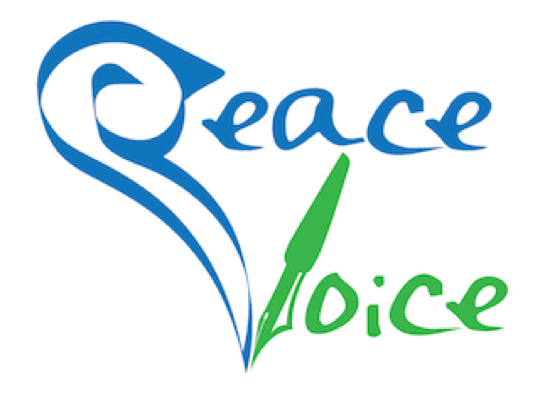
By Mel Gurtov
If there is one thing I have learned as a political analyst, it is that there is no such thing as “never again.” Use of weapons of mass destruction against civilians as well as soldiers? Widespread hostility toward immigrants? Ethnic cleansing and genocide? Putting autocrats in power by popular vote? A US president who is antidemocratic, criminal, and uncaring about human rights? And now, how about a new Hitler in the heart of Europe?
Seems inconceivable, but a far-right, white nationalist tide is engulfing several European countries where we thought democratic rule and liberal social policies were the unbreakable norm. There, as here, all it takes is a few violent incidents orchestrated by immigrants to fire up a crowd and enhance the popularity of right-wing parties. Almost needless to say, Donald Trump’s America is a central actor in this sad drama. When have you ever read articles on democracy in a mainstream publication that lumped the “authoritarian” US president with leaders in China, Russia, Egypt, and Turkey?
Social scientists seem to have reached a consensus about the causes of the nationalist upsurge (see Foreign Affairs for May-June 2018): the decline of the social-welfare state, economic downturn since 2008, failure of liberal parties to deliver on jobs and economic growth, scapegoating of immigrants, and the role of social media in broadcasting both real and imaginary reasons for loss of faith. Equally, however, these same social scientists seem to have run out of answers beyond saying the obvious about the need for economic, social, and political regeneration. While they pontificate, the Russians rub their hands: These supposed populists, united in their hostility to the European Union, typically look eastward for inspiration, financial support, and quite often election hacking. And Vladimir Putin is happy to oblige.
Steve Bannon has emerged as the Josef Goebbels to the next Hitler. Except that he is doing Goebbels one better: He’s marketing white nationalism around Europe, awaiting the next great leader who will hire him (as Ukraine did Paul Manafort). All the while, Bannon is propping up Trump, warning of how the deep state is out to get him. Bannon has become the sort of criminal whom Scotland Yard ought to be pursuing: a trafficker in hate and authoritarianism. Marine Le Pen, the right-wing leader of what is now called the National Rally party, disavowed Bannon’s support because he’s not a European. But will others do likewise? Bannon brings money and reputation, which are hard to resist. Ask Nigel Farage, who has teamed with Bannon to form The Movement, a foundation based in Brussels that aims to win seats in the European Parliament next year, largely on the basis of hostility to the EU.
Here is a profile of the far right’s major gains:
In Germany, neo-Nazis, represented by (among other groups) Alternative für Deutschland (AfD), are gradually normalizing the far right in Germany: AfD is now the second most popular party, and the German equivalent of “fake news,” Lügenpresse, or lying press, has gained legitimacy. Attacks on refugees and Jewish businesses are dismissed on the right. By one account, these are symptoms of an imperiled democracy that has “conservative politicians showing open sympathy for right-wing positions . . . the structural attack on the very notion of a rational discourse,” and disregard for the press in favor of “obvious lies and falsehoods” about the anti-immigrant rioting in the town of Chemnitz.
By another account, the far right has infected the political system to a greater extent than commonly realized: “A constellation of forces is now relearning to cooperate: right-wing street movements, right-wing news outlets, a fully fledged political party and a murky portion of the state bureaucracy.” That “portion” is the security services: the federal domestic intelligence service and local police. Attacks on immigrants occur more frequently in the former East Germany, whose economy and political voice lag behind the western half of the country.
In Hungary, “[Viktor] Orbán stands accused of undermining the independence of its judiciary and media, waging a propaganda and legal war against the Central European University, founded by the philanthropist George Soros, and mistreating asylum seekers and refugees while limiting the functioning of non-governmental organisations who seek to aid them.” The European Union is expected to sanction Hungary’s voting rights, as it did Poland’s in December, after a report that found the above.
In Italy: At a meeting with Orbán, the Italian interior minister, Matteo Salvini, vowed :”“We want to change Europe’s commission. We want to protect our borders. We are going to fight pro-migrant policies supported by [Emmanuel] Macron and [George] Soros.” Salvini called Orbán his “hero” for protecting Hungary’s borders from migrants. “Eastern Europe’s authoritarians and Russia are mentioned, esteemed, admired and defended by Italy’s leaders at every turn,” one observer writes.
And in Sweden, we have the neo-Nazi Sweden Democrats (SD): In parliamentary voting on September 9, the SD won 17.6 percent of the vote, below the predicted 25 percent but about 5 percent higher than in 2014. The Social Democrats won 28.4 percent, a century-low and not enough to form a government on its own. The deadlock means great difficulty for all the parties as they try to find coalition partners. (Note: On a per capita basis, Sweden has allowed in more immigrants—163,000—than any other EU country.)
Far-right parties are also in power in Norway, Finland, and Austria. Right-wing nationalists almost succeeded in France, and they have a strong foothold in Britain, evidenced by the Brexit vote. Even where the far right isn’t yet a factor, as in Romania, the rule of law and democratic institutions are under assault.
Here at home we have an administration whose conduct not only helps promote Euroskepticism but also reminds historians of the rise of fascism in Europe. Trump is not another Hitler, but his wanton destruction of democratic processes, his efforts to undermine institutions of international cooperation, and his thinly veiled incitements of supporters to violence are all too reminiscent of the Nazi era. See Christopher R. Browning’s important essay, which traces the similarities as well as the differences. So far, our lower courts, city and state governments, and especially NGOs have courageously resisted the onslaught on our rule of law and protections of human rights and the environment. But unless we’re vigilant and prepared to fight back, we’ll lose our democracy as surely as the Europeans are in danger of losing theirs.
Mel Gurtov, syndicated by PeaceVoice, is Professor Emeritus of Political Science at Portland State University.

 Print This Post
Print This Post







